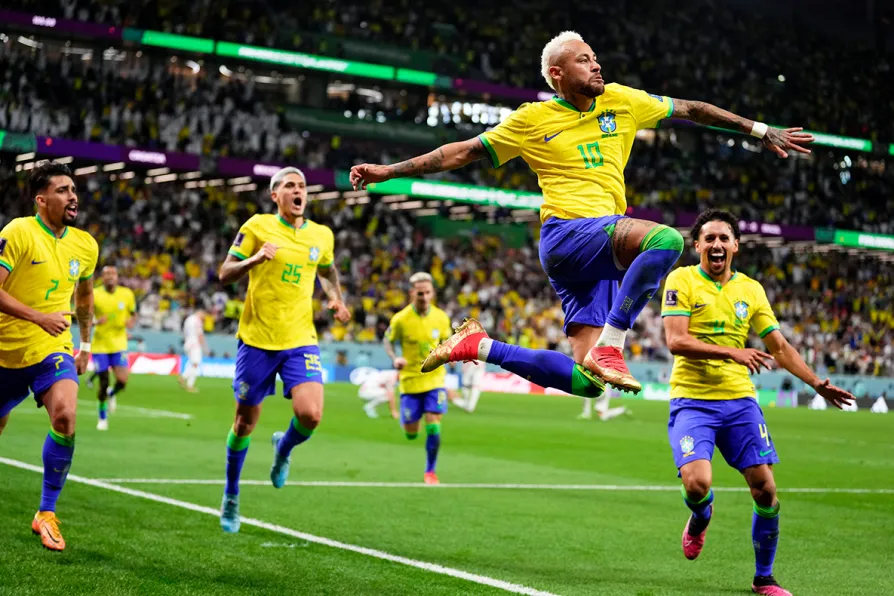
 Stunning scenes: Brazil’s Neymar celebrates scoring
Stunning scenes: Brazil’s Neymar celebrates scoring
THERE was a numbness around much of the football world in the build-up to the 2022 World Cup in Qatar.
A men’s World Cup held for the first time outside the months of May to July, catching anyone potentially interested slightly off guard with its timing and close proximity to domestic league and cup matches.
More pertinent issues than the time of year it was being held preceded and followed kick-off at this World Cup, from Fifa corruption related to the awarding of the tournament to human rights issues in the host country.
This has increased the sense of disillusion around the World Cup and indeed increased disengagement from top-level football as a whole. Some fans decided to ignore the tournament altogether and some in the media have also boycotted it.
But amid this elaborate and costly football fete, the sport of association football itself has reminded us why it is so popular, and especially so with those who are apparently looking to carry out what has been termed “sportswashing” — attempts to use sports to launder their reputation on the global stage, and an exercise in soft power.

Joao Pedro’s emotional goals against Fluminense captured the magic of an international club competition. But even as fans bring colour and passion, the Club World Cup’s deeper issues loom large, writes JAMES NALTON

JAMES NALTON discusses how Fifa claims to be apolitical, but as Infantino and Juventus players stood behind Trump discussing war, gender, and global politics, the line between sport and statecraft vanished

JAMES NALTON discusses the use of dynamic ticket pricing at the 2026 World Cup and how it amplifies a culture already set up to squeeze as much money from fans as possible











